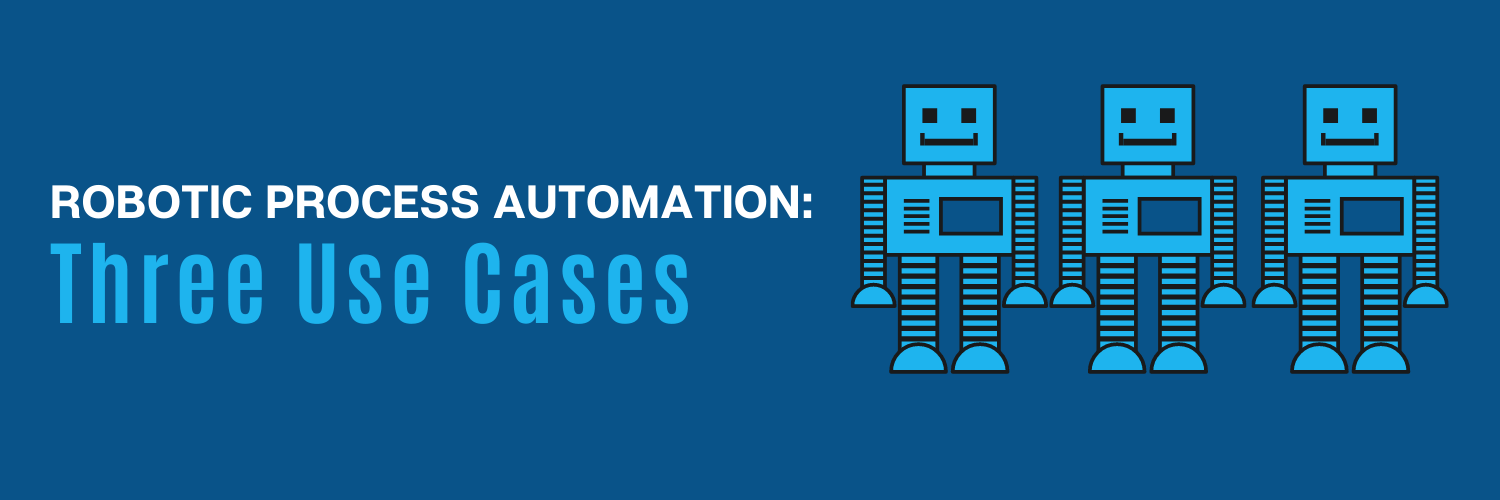

Many companies are currently trying to contend with inefficient internal processes, overworked employees, and rising operating costs. They’re dealing with all this while facing budget cuts and having a reduced staff, making it increasingly difficult to improve operational productivity.
Savvy companies are turning to automation technologies to help combat these issues in order to optimize their internal processes.
Some are choosing Robotic Process Automation (RPA)—a tool that allows companies to increase employee productivity, reduce costs, and automate tasks within their existing systems.
RPA Defined
Before offering solutions to these challenges, it’s imperative for companies to understand exactly what RPA is. Robotic process automation is software that automates repetitive computer tasks. Tasks such as manually typing information copied from another source or comparing information to ensure accuracy. These tasks cut into employee productivity and prevent workers from spending time on more important tasks. That’s where RPA comes in.
RPA was ranked the fastest-growing enterprise software by Gartner last year. Not only does it have an enormous impact on employee productivity, but it’s a simple technology compared to other emerging technologies like artificial intelligence and blockchain. This software allows companies to increase efficiency and avoid implementing new systems that come with a hefty price tag.
RPA Use Cases
1. Financial Operations
Financial reporting, expense account processing, and accounts payable are just a few areas within financial departments that can benefit from RPA. These involve simple, time-intensive tasks that require employees to do repetitive work.
With RPA a financial department can automate monthly financial management reports, automate data capture and entry for accounts payable, and potentially automate the entire process for expense accounts. This includes capturing new expenses, creating a document that lists expenses, and completing necessary tasks to ensure all expenses are ready for approval.
With all this automated, employees in the finance department can now focus on value-added tasks as opposed to basic manual tasks.
2. Administrative Services
Administrative duties within any company are rife with manual processes often subject to potential human error. RPA is an ideal solution to increase accuracy within administrative duties and allow employees to focus on more impactful work, thus increasing job satisfaction.
RPA gives administrative departments the ability to automate manual data entry and cross-check documents for accuracy. For example, any tasks or processes that require Microsoft Excel can utilize RPA.
3. Human Resources
RPA can be applied to several human resources processes. For example, RPA can be implemented in the hiring process. This software can be configured to monitor when resumes come in, download the resumes, and then screen them by looking for specific skills or keywords in the resume. This saves a human employee from having to take the time to sit down and review each resume.
Another one is the employee onboarding process. RPA can populate new employee information into the various forms employees are required to fill out. It can be applied to each system of record within a company.
The last example comes from one of our clients, who utilized RPA in their human resources department to automatically submit a background check every time a candidate applied for a job. RPA was able to make the process faster and save the client quite a bit of money by being able to do these automated background checks.
To learn more about RPA, check out some of our content below:
